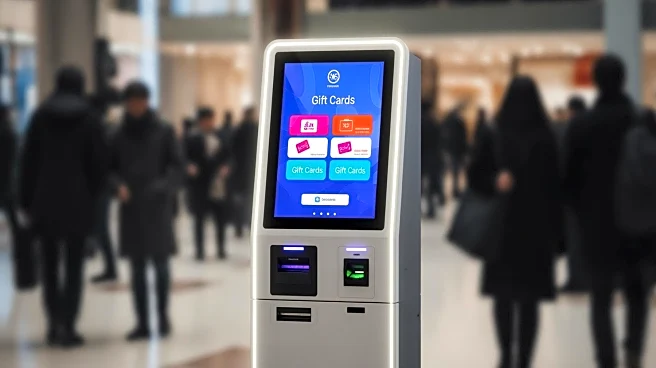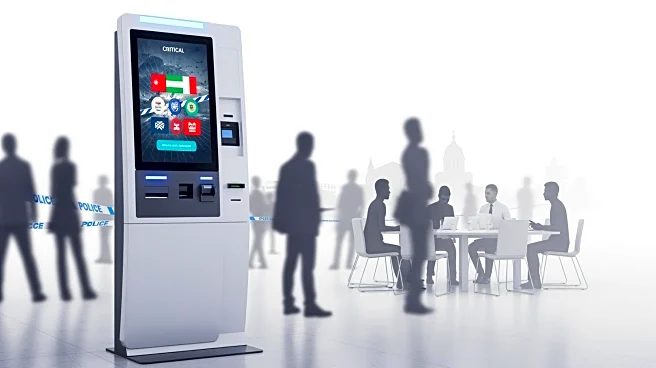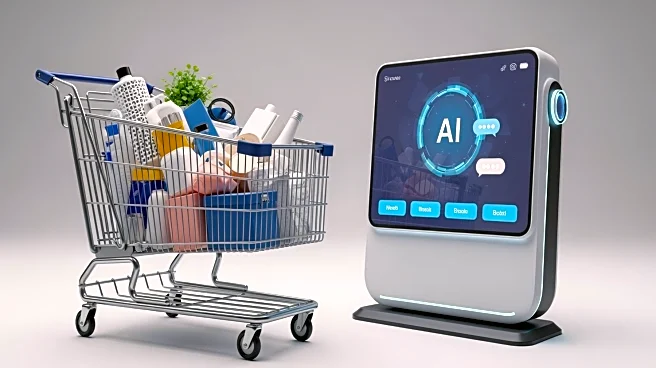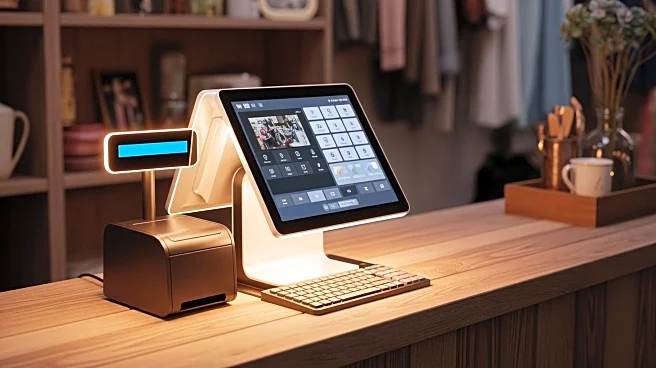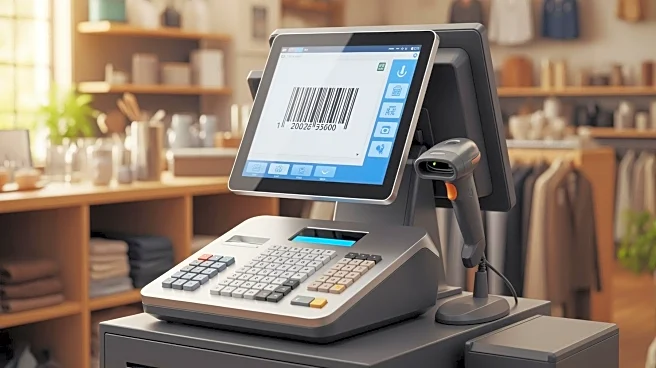What's Happening?
Factor4, a provider of gift card and loyalty solutions, has introduced a customizable self-service kiosk aimed at streamlining gift card purchases and balance checks. The kiosk is designed for high-traffic
locations such as events, restaurants, hotels, and retail environments. It allows customers to buy between one and 500 branded gift cards per transaction, check balances, and redeem cards both online and in-store through real-time digital integration. Payments can be made using cash or credit card. The kiosks are intended to provide convenience and efficiency in environments where speed and scale are crucial.
Why It's Important?
The introduction of self-service kiosks by Factor4 represents a significant shift towards automated retail technology, which is increasingly being adopted in various sectors. This move is likely to enhance customer experience by reducing wait times and providing a seamless transaction process. Businesses stand to benefit from increased revenue opportunities and improved operational efficiency. The deployment of these kiosks in high-traffic areas such as stadiums and hotel lobbies reflects a broader trend towards automation in retail, which could lead to reduced labor costs and increased customer satisfaction.
What's Next?
Factor4's self-serve kiosks are expected to be deployed in various high-traffic locations, potentially leading to wider adoption of automated retail solutions. As businesses seek to maximize revenue and improve customer experience, the demand for such technology is likely to grow. Stakeholders in the retail and hospitality industries may consider integrating similar solutions to stay competitive. The success of these kiosks could prompt further innovation in self-service technology, potentially expanding into other areas of retail and service industries.
Beyond the Headlines
The deployment of self-service kiosks raises questions about the future of human interaction in retail environments. While automation offers efficiency, it may also lead to reduced employment opportunities in sectors traditionally reliant on customer service roles. Additionally, the integration of digital payment systems and real-time data processing could have implications for data privacy and security, necessitating robust measures to protect consumer information.
